If you’ve ever stumbled upon a video of a capybara lounging with ducks, cats, or even crocodiles, you’ve probably wondered: Are capybaras friendly? Spoiler alert: Yes, they are! But there’s so much more to these gentle giants than their laid-back vibes. Let’s dive into why capybaras are considered one of the friendliest animals on the planet, how they interact with humans and other animals, and what makes them so uniquely lovable.
Why Are Capybaras So Friendly?
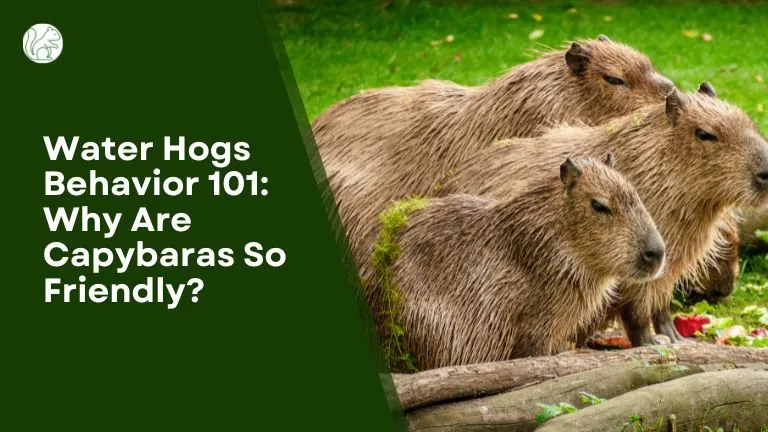
Capybaras are the ultimate social butterflies of the animal kingdom. Native to South America, these semi-aquatic rodents thrive in groups, often forming herds of 10 to 20 individuals—sometimes even up to 100! Their friendly nature stems from their need for companionship and their non-aggressive, herbivorous lifestyle.
Here’s what makes them so approachable:
- Social Structure: Capybaras live in tightly-knit groups, which helps them build strong bonds not only with their own kind but also with other species.
- Calm Demeanor: They’re herbivores, so they don’t have the predatory instincts that might make other animals wary.
- Communication Skills: Capybaras use a variety of sounds—like purrs, barks, and whistles—to express themselves, making them great at connecting with others.
Capybaras and Humans: A Unique Bond

Can Capybaras Be Friendly to Humans?
Absolutely! Capybaras are known for their calm and docile nature, especially when raised around humans from a young age. They’re curious creatures and often approach people without hesitation, especially if snacks are involved.
However, it’s important to remember that capybaras are still wild animals. While they’re generally gentle, they can become defensive if they feel threatened or cornered. Respect their space, and you’ll likely find them to be incredibly affectionate companions.
Real-Life Examples of Human-Capybara Friendship
Take the story of Caplin Rous, a capybara who became an internet sensation. His human family in Texas provided him with a spacious backyard and a private pool, creating an environment where he thrived. Caplin’s calm demeanor and love for cuddles made him a beloved pet and a testament to the bond capybaras can form with humans.
Capybaras and Other Animals: The Ultimate Peacemakers
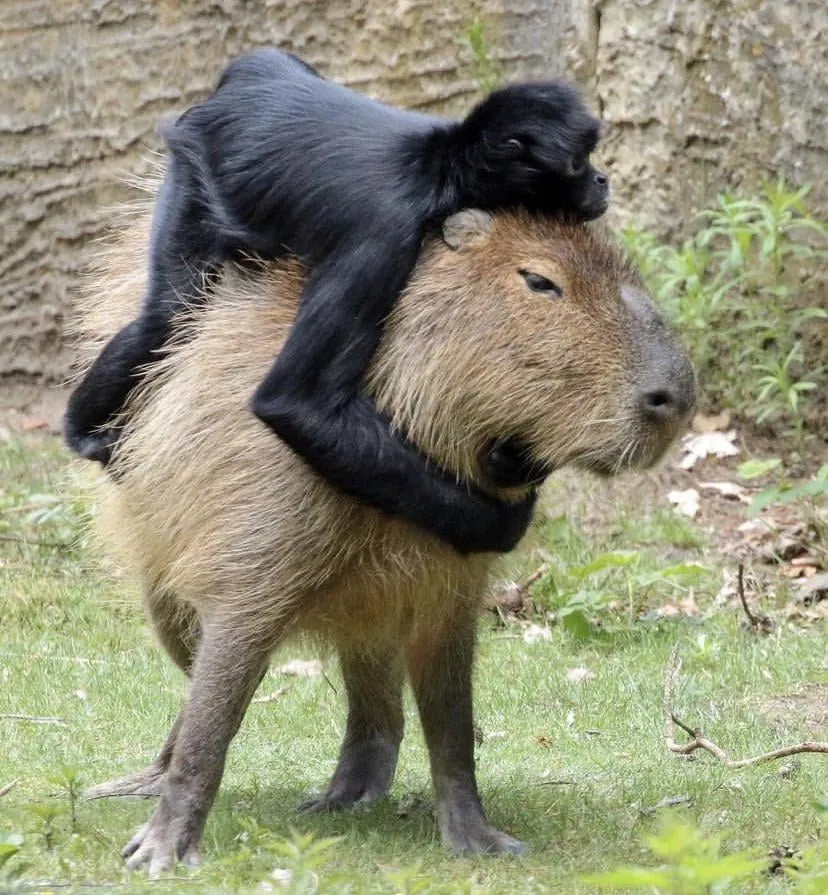
One of the most fascinating things about capybaras is their ability to get along with almost any animal. From birds perched on their backs to monkeys hitching a ride, capybaras are like the Switzerland of the animal world—neutral, calm, and universally loved.
Why Do Animals Love Capybaras?
- Gentle Temperament: Their non-threatening behavior makes other animals feel safe around them.
- Mutual Grooming: Capybaras often engage in grooming sessions with other species, fostering trust and companionship.
- Neutral Body Language: Their relaxed posture and calm demeanor signal to other animals that they’re not a threat.
Are Capybaras Dangerous?
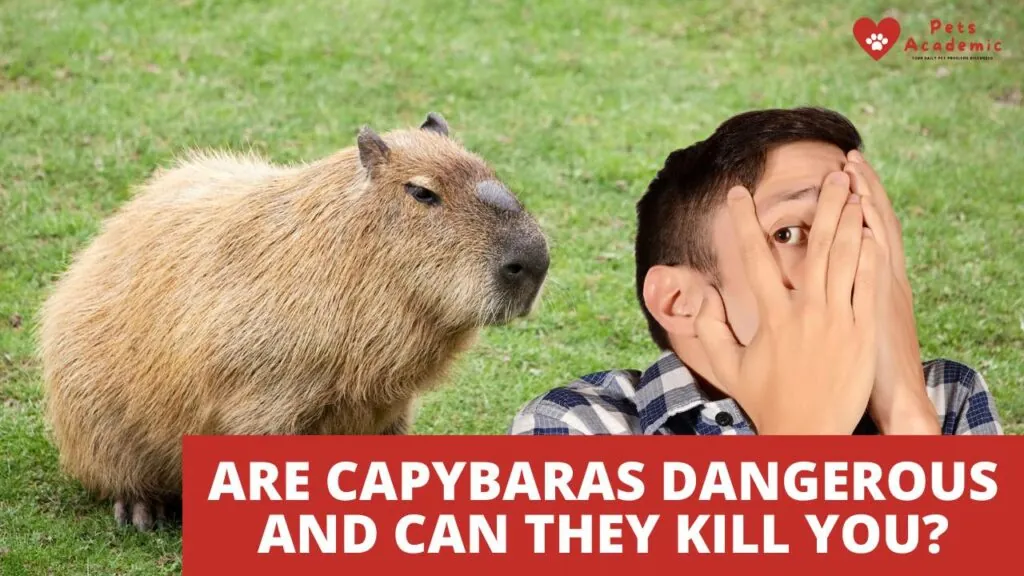
While capybaras are generally friendly, it’s important to understand their boundaries. They have sharp teeth and strong jaws, which they use for chewing tough vegetation—not for attacking. However, if they feel threatened or if their young are in danger, they might bite or charge in self-defense.
Tips for Safe Interaction
- Approach Slowly: Avoid sudden movements that might startle them.
- Respect Their Space: Let them come to you rather than forcing interaction.
- Watch for Signs of Stress: If a capybara starts hissing or chattering its teeth, it’s time to back off.
Capybaras as Pets: What You Need to Know
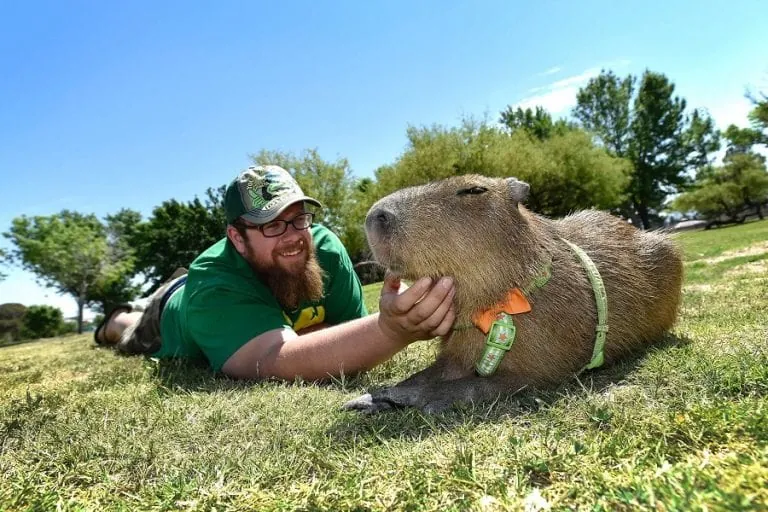
Thinking about bringing a capybara into your home? While they can make wonderful pets, they come with unique challenges.
Pros of Owning a Capybara
- Affectionate Companions: Capybaras form strong bonds with their human caregivers.
- Unique Personality: Their playful and curious nature makes them endlessly entertaining.
- Social Animals: They thrive in groups, so having more than one can keep them happy.
Cons of Owning a Capybara
- Space Requirements: Capybaras need a lot of room to roam and access to water for swimming.
- Dietary Needs: Their diet consists of grasses, hay, and fresh vegetables, which can be time-consuming to prepare.
- Legal Restrictions: In some areas, owning a capybara requires special permits or is outright banned.
FAQs About Capybaras
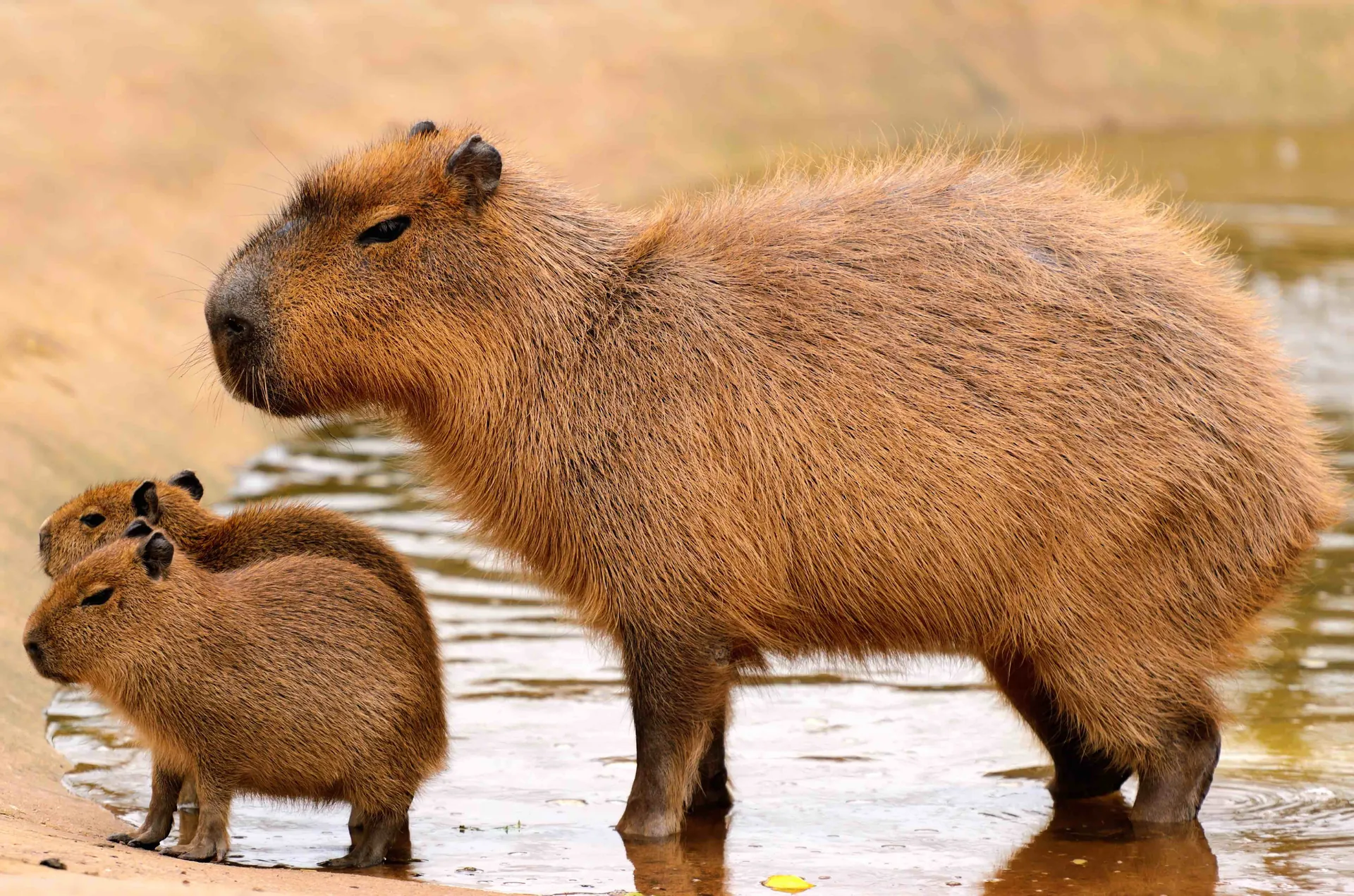
1. Do capybaras like to cuddle?
Yes! Capybaras are known for their love of physical contact. They often cuddle with each other, humans, and even other animals for warmth and comfort.
2. Are capybaras aggressive?
No, capybaras are generally calm and non-aggressive. However, they may defend themselves if they feel threatened.
3. Can capybaras live with other pets?
Capybaras can coexist peacefully with other animals, but introductions should be done carefully to ensure everyone’s safety.
4. How long do capybaras live?
In captivity, capybaras can live for 8 to 12 years with proper care.
5. What do capybaras eat?
Capybaras are herbivores and primarily eat grasses, aquatic plants, and fresh vegetables.
Final Thoughts: Are Capybaras Friendly?
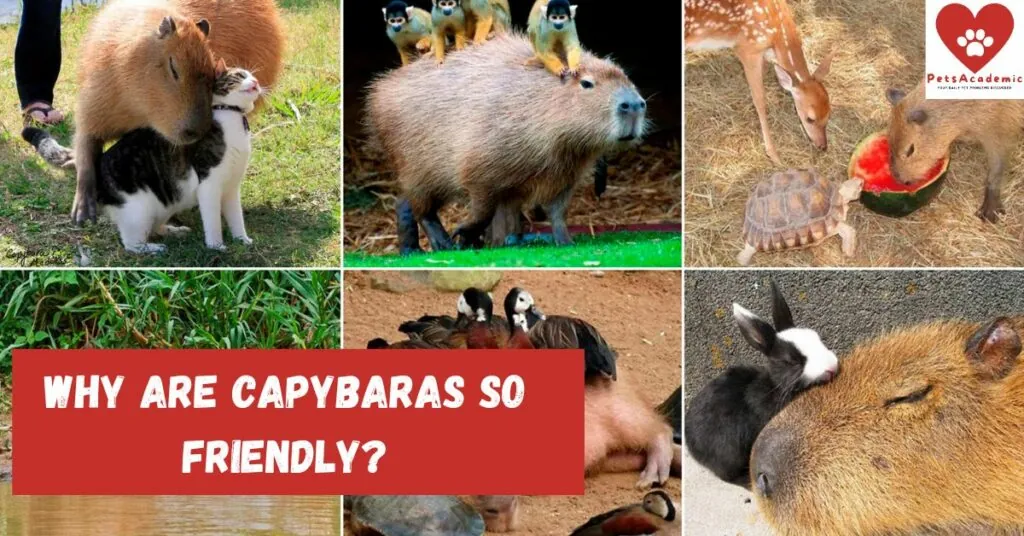
So, are capybaras friendly? The answer is a resounding yes! These gentle giants are not only friendly but also incredibly social, adaptable, and downright lovable. Whether they’re lounging in a hot spring, cuddling with a duck, or forming bonds with humans, capybaras have a unique ability to bring peace and joy to those around them.
If you’re considering interacting with or even owning a capybara, remember to respect their needs and boundaries. With the right care and environment, these amazing creatures can make wonderful companions.
So, the next time you see a capybara chilling with a crocodile, you’ll know: Capybaras are the friendliest rodents on the planet!
Loved this article? Share it with your friends and let them in on the secret of capybaras’ unmatched friendliness!
